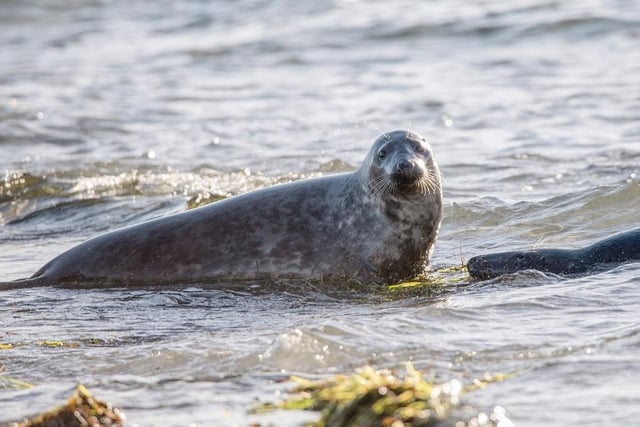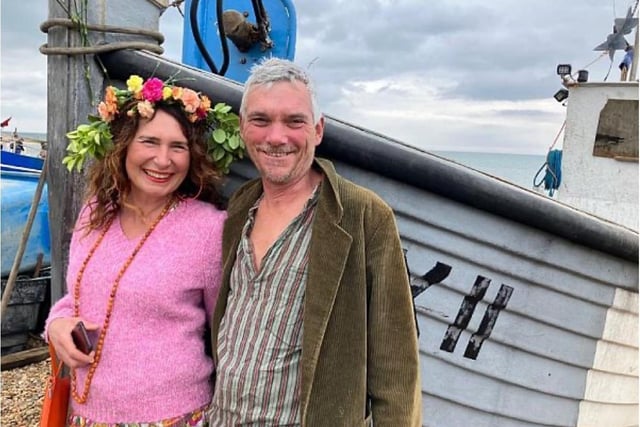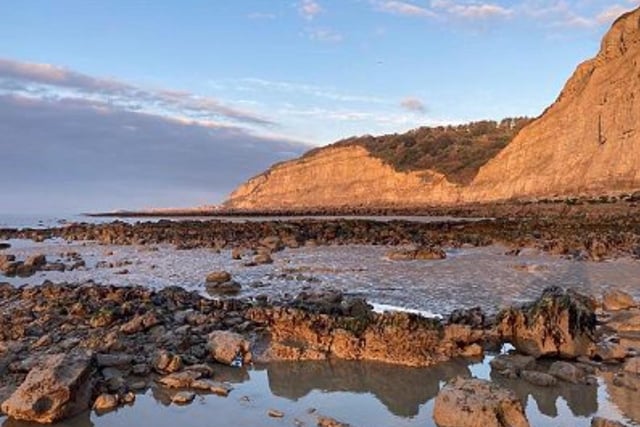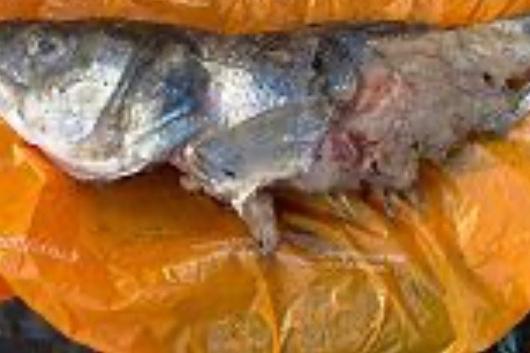The seals are not native to this area but have bred and formed a substantial colony beneath the cliffs at Fairlight, where they are often sighted.
Fishermen believe the seals have established themselves after being released back into the sea by the RSPCA centre at Mallydams at Fairlight, which has a seal treatment area including a pool.
Paul Stanley and his partner Lucy Phillips fish from the small boat ‘Christine’ RX11. Speaking to Chandra Masoliver of Hastings Online Times, Paul said: “Seals are released by Mallydams into local waters. There’s a huge colony of forty to fifty under the cliffs at Fairlight. They are not a native species to this area, and they are doing massive damage to the fish stock, and to fishermen’s livelihood. If something like this happened on land, such as a dog let loose attacking sheep, it would be shot.”
Lucy added: “Because of the seals, netting, one of the most sustainable ways of fishing, and what we mostly do, is becoming more and more difficult. Trawling could then become the only way to fish.”
Paul said: “I think fishing has always been done sustainably in Hastings. Even when I was a boy of ten there were size limits, fishery officers quite regularly checked what came ashore. There are so many rules against us now that it’s getting very very difficult to make a living, and no youngsters are coming in to the industry, so in twenty years there won’t be a fishing industry in Hastings.”
Spencer Marchant said: “Seals cause damage which directly affects the Hastings fleet. which is more historic than these new visitors. Mark Ball added: “These seals are not native to this area. They have been introduced from other areas. I have been fishing for over 44 years and we never saw any seals until the last five years.”
Matthew Pond contacted the Observer to say: “The seals can be seen in huge numbers congregating off the cliffs at low tide. They are a non native colony that has been introduced by a local rescue centre that has released them in the local area. The seals have colonised the cliffs at Fairlight and are wreaking havoc for the local fisherman. Where they are congregating is the historic spawning grounds for seabass and mullet. These fisheries have been damaged due to the invasive colony.“Furthermore, the presence of this huge colony of seals has caused many fisherman to stop using their traditional gill nets because of the damage caused by the seals who eat the fish out of the nets after following the boats to sea.”Stephen Savage, who is Sussex regional coordinator of the Sea Watch Foundation’s Sussex Seal Project, confirmed that grey seals are not native to this coast saying that previous sighting were seals taking up temporary residence or passing through.
In Kerry, Ireland, in 2020 fishermen called for a cull on seals due to the impact they were having on the fishing industry.
But one Hastings woman, commenting on social media, said: “I get that fishermen make a living from what they do, but at the the same time the only food that seals eat comes from the sea. The sea is the seal’s home and food source. People do more damage to the sea through pollution. Seal’s eating things from the sea is natural.”
Have you read? Hastings could be invaded by thousands of flying ants

1. Seals
A grey seal Photo: supplied

2. Seals
Paul Stanley and Lucy Phillips who fish in the RX 11 Photo: supplied

3. Seals
The cliffs east of Rock-a-Nore where the seal colony has become established,. Pic by Lucy Phillips Photo: supplied

4. Seals
The damage caused to fish by seals Photo: supplied